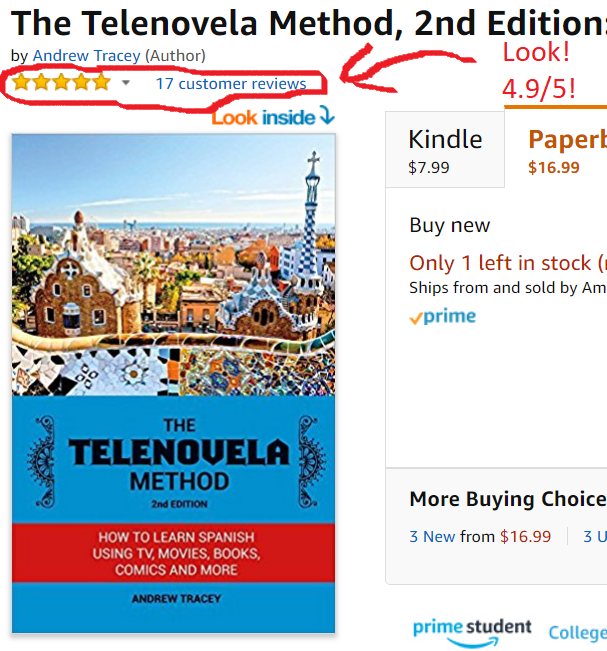
This is one of those personal preference things, it really is: within the language-learning community, from experienced polyglots who speak half a dozen languages and have been learning languages for 20 years or more you’ll get a myriad of opinions on the matter, some of them polar opposites of each other. And that’s fine. They’ve tried a bunch of
things and sorted out what works best for them, and you’ll have to do that, too. There’s no getting around it: to figure out what works best for you, you’re going to have to try several different methods and styles of learning, you’re going to have to figure it out by testing. Just like with many other things in life you’re going to have to fail your way to success: meaning the only way to figure out what works is to try a dozen things that don’t, first.
That said, I’d definitely like to give you some guidelines based off of my experience and what I’ve learned and heard from other language learners…
Vocabulary and Grammar
There is a certain minimum amount of basic vocabulary, grammar, and syntax that you have to know to even begin learning to speak and read the language, but it’s probably far smaller than you think. You can get the minimum down in a few days (you’d be surprised how many words you can learn if you do it properly) and the best way to go about determining what you need to know is to expose yourself to popular media in the language in question (news broadcasts or, better, TV shows and movies with lots of natural conversations between natives) and look up and learn those words you see being used repeatedly. These will be basic things such as, “the, at, go, is, are, you, he, she, it, were, am going,” etc. Those things that you have to know to be able to work with a language at all and how to use them (minimal syntax and grammar), you will end up learning, it’s inevitable. Done.
What Now?
Well, what do you want to do with the language you’re learning? Do you need to be able to, primarily, speak with other people? Do you need to be able to, primarily, read trade journals or technical manuals or news items in the language in question? Do you just want to be able to watch TV shows? What you want to do, what’s important to you, is what will determine how you go about this.
If you want to be able to speak, start speaking. Hell, you could do that from Day 1 while you’re just getting some basic vocabulary and grammar down, throw yourself in the deep end of the pool, after you get over that initial shock of the cold water you’ll be glad you did it and you’ll find that it’s nowhere near as bad as you thought it was going to be. Get on a language exchange site or a social network, find native speakers, or find some locally if you can, and START TALKING!
If you want to be able to read, start reading. If you want to be able to read news items and general books, then use the method I described above, acquire those items, and start reading them–like I said, it might take you an hour to finish a single page, but you will learn FAST if you’ll do this and stick with it. Same thing goes for if you want to be able to understand trade publications or more technical information: get the sort of material that you want to be able to read, pull up Google or an online dictionary (for Spanish I highly recommend SpanishDict) and get to work. You’ll get faster and faster and faster as you go along, and won’t take as long as you think to get to a respectable rate of speed.
In Summary…
Notice a pattern here? Whatever it is that you want to do, the best way to learn how to do that is to start doing it no matter how bad you are at it to begin with! Just go, dive in, kick your own butt, make yourself do this–it’s not as scary as you think, you can do it! I know I keep repeating this, but so many people want to procrastinate and delay and “prepare” by reading grammar books, doing verb conjugation workbooks, memorizing “just a few more words” before they’ll finally “be ready” to start speaking with native speakers: don’t do that, JUST GO!
I learned to speak conversational Spanish in six months using TV shows, movies, and even comics: I then wrote a book on how you can, too
I have a whole method and a book I wrote about it called The Telenovela Method where I teach you how to learn Spanish from popular media like TV shows, movies, music, books, etc. that you can all find online for free. It was the #1 new release in the Spanish Language Instruction section on Amazon for nearly a month after it came out and currently has 17 reviews there with a 4.9/5 stars average. It's available for $7.99-$9.99 for the e-book version depending on who you buy it from (Kindle version on Amazon is now $7.99) and $16.99 for the paperback (occasionally a bit cheaper, again, depending on who you buy it from).
It's currently available in both e-book and paperback from:
Cheers,
Andrew







